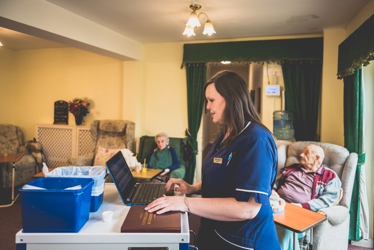Blog

Data Protection and Cyber Security in Social Care
Read Article on Data Protection and Cyber Security in Social Care
A Guide to Care Home Fire Safety
Read Article on A Guide to Care Home Fire Safety
Care Home Marketing – Top 7 Tips You Need to Know
Read Article on Care Home Marketing – Top 7 Tips You Need to Know
DBS in Social Care – Your Complete Guide
Read Article on DBS in Social Care – Your Complete Guide
Importance of Staff Training in Health and Social Care
Read Article on Importance of Staff Training in Health and Social Care
End Of Life Care And End Of Life Care Plan
Read Article on End Of Life Care And End Of Life Care Plan
Hazardous Substances in a Care Home – The Top 7 Offenders
Read Article on Hazardous Substances in a Care Home – The Top 7 Offenders
Caring for Dementia – 7 Common Mistakes and How to Avoid Them
Read Article on Caring for Dementia – 7 Common Mistakes and How to Avoid Them
Effective Communication in Health and Social Care
Read Article on Effective Communication in Health and Social Care
Dignity in Care – How You Can Promote It
Read Article on Dignity in Care – How You Can Promote It
How Residential Care Homes Can Reduce Costs Without Reducing Care Quality
Read Article on How Residential Care Homes Can Reduce Costs Without Reducing Care Quality
Business Continuity Plans In Social Care - What's the Best Approach?
Read Article on Business Continuity Plans In Social Care - What's the Best Approach?
Care Home Assistant Practitioner - Everything You Need To Know
Read Article on Care Home Assistant Practitioner - Everything You Need To Know
Quality in Care - Best Ways to Manage and Improve It
Read Article on Quality in Care - Best Ways to Manage and Improve It
Best Ways to Get Care Staff Engaged with Learning and Training
Read Article on Best Ways to Get Care Staff Engaged with Learning and Training
The Most Desirable Skills Of A Care Worker And How To Recruit Them
Read Article on The Most Desirable Skills Of A Care Worker And How To Recruit Them
New CQC Inspection Framework and Provider Portal for Care
Read Article on New CQC Inspection Framework and Provider Portal for Care
Guide to Safe Staffing and Regulations in Care for UK
Read Article on Guide to Safe Staffing and Regulations in Care for UK
Common Problems with Care Home Software and How to Avoid Them
Read Article on Common Problems with Care Home Software and How to Avoid Them
CQC Quality Statements
Read Article on CQC Quality Statements
Care Home Occupancy - Why Is It Important?
Read Article on Care Home Occupancy - Why Is It Important?
Care Home Software - How Long Does It Take To Implement?
Read Article on Care Home Software - How Long Does It Take To Implement?
Care Home Activities Ideas
Read Article on Care Home Activities Ideas
Care Home Audits – What are the Key Principles to Follow
Read Article on Care Home Audits – What are the Key Principles to Follow
How to Become a Registered Care Manager
Read Article on How to Become a Registered Care Manager
Regulators for Standards in Health and Social Care
Read Article on Regulators for Standards in Health and Social Care
What Is The CQC - What Does CQC Mean And What Does It Do?
Read Article on What Is The CQC - What Does CQC Mean And What Does It Do?
How Can Care Homes Prepare for Data-Driven Regulation
Read Article on How Can Care Homes Prepare for Data-Driven Regulation
A Guide to Risk Based Auditing
Read Article on A Guide to Risk Based Auditing

 AU & NZ
AU & NZ
 SG
SG
 MY
MY
 US
US
 IE
IE